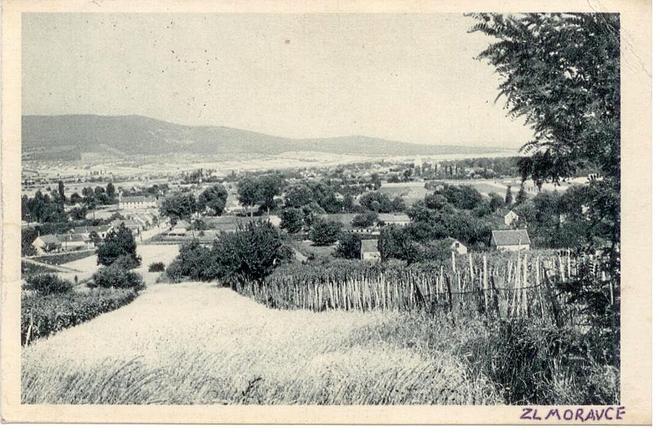This postcard from 1947 captures the town of Zlaté Moravce in the Žitava river basin. On mild slopes, there are still vineyards in which the grapevines were fixed by wrapping a wire around a štek, a wooden post. This way of fastening vines continued until the 1970s when it was replaced by long wires running the length of the rows.
Along with the Small-Carpathian region, the Požitavie area is among the country’s traditional wine growing regions. Here, monasteries pursued grape growing in the Middle Ages. All viticulturists had to pay taxes, a tithe of one-tenth the harvest. The person authorised to collect this tax was called a dežmár.
As the tithe represented a considerable sum for villagers, they tried to avoid paying it. In practice, this meant that they picked the grapes and processed them before the dežmár came.
Then, they hid barrels of wine in pits dug in fields or somewhere on their property. Of course, the lords knew about such evasions, and as early as 1500 the regional council issued a law that stipulated that instead of taxing wine, grapes should be counted and tax collected already during the harvest.
A bad blow to local viticulture was the Ottoman wars, as enemy armies frequently made it to Požitavie. Vineyards were plundered and those that survived were taxed by the Ottomans.
After the Ottoman wars, a law became valid which stipulated that whoever planted a vineyard did not have to pay tax for several years. This is probably the only explanation for that fact that in 1715, big areas of brand new vineyards appeared above the village of Čifáre. Tax dodging is as old as viticulture itself.
This article was originally published by The Slovak Spectator on April 27, 2015. It has been updated to be relevant today.

